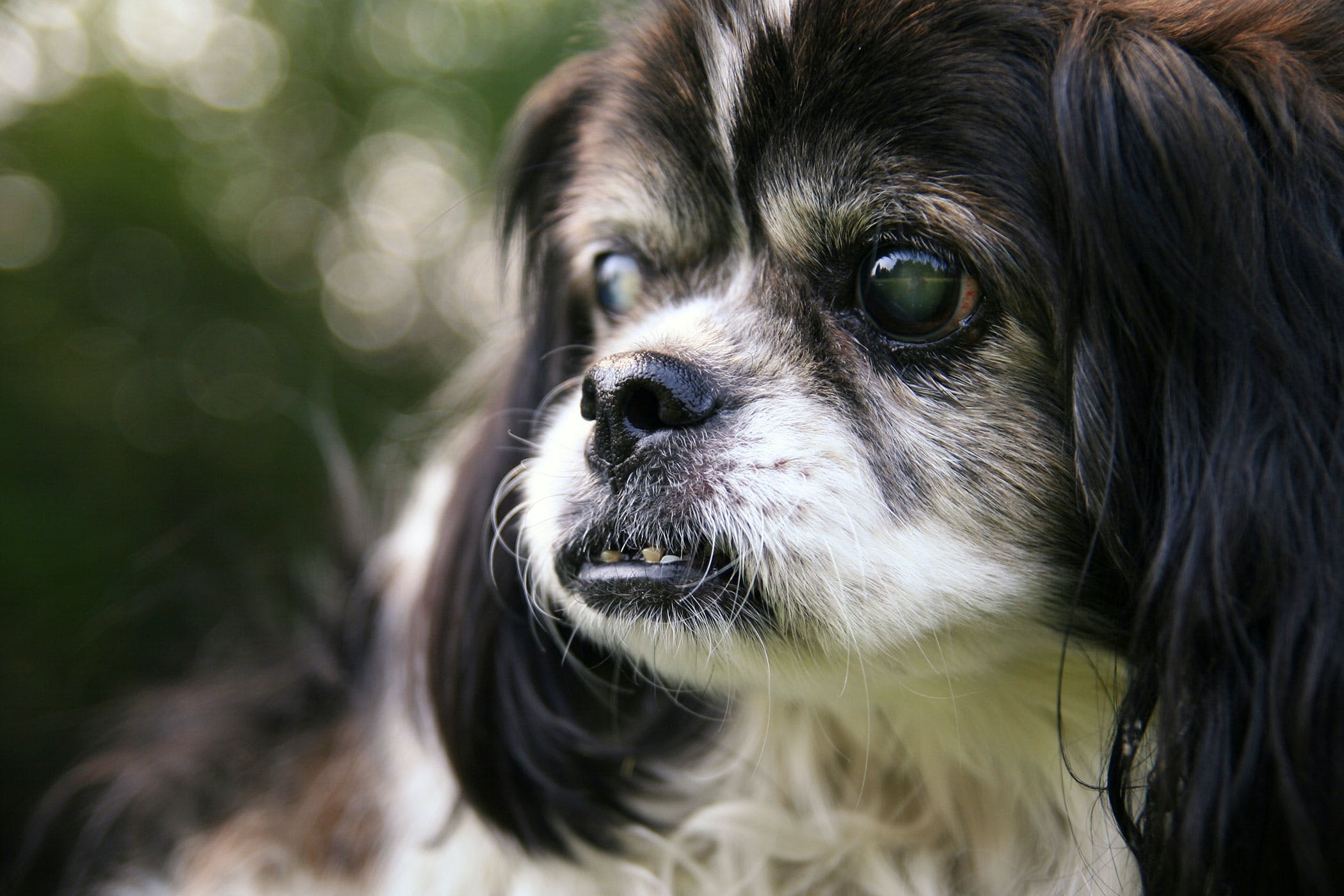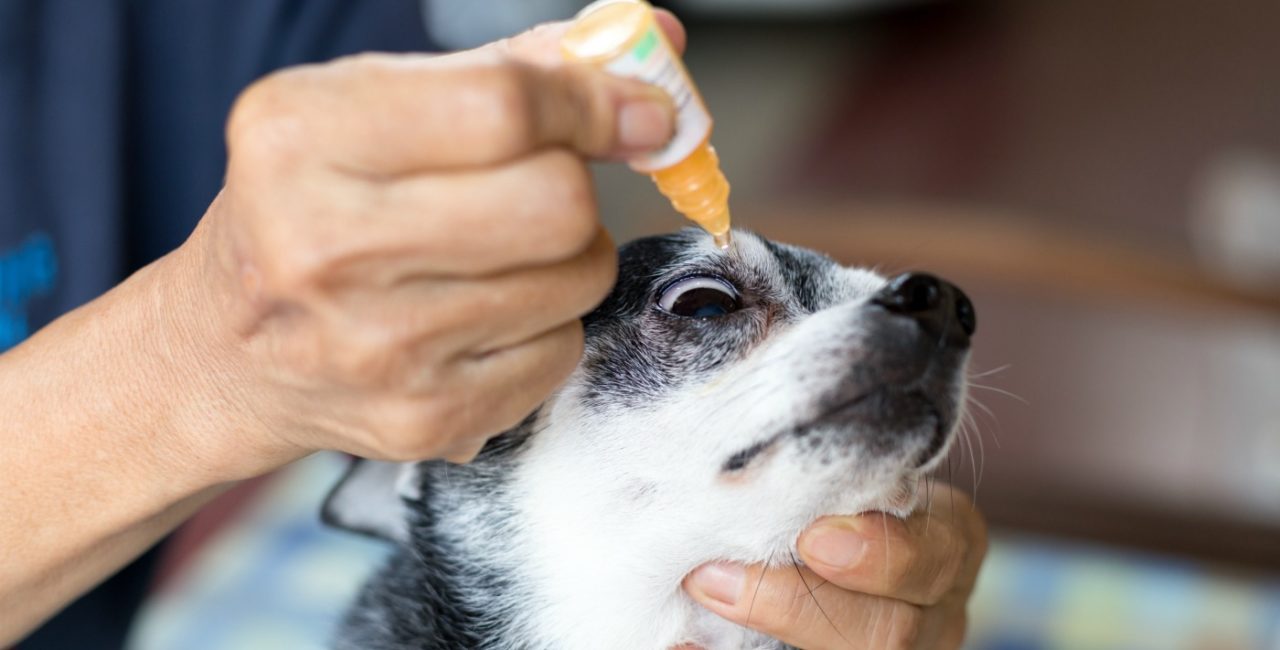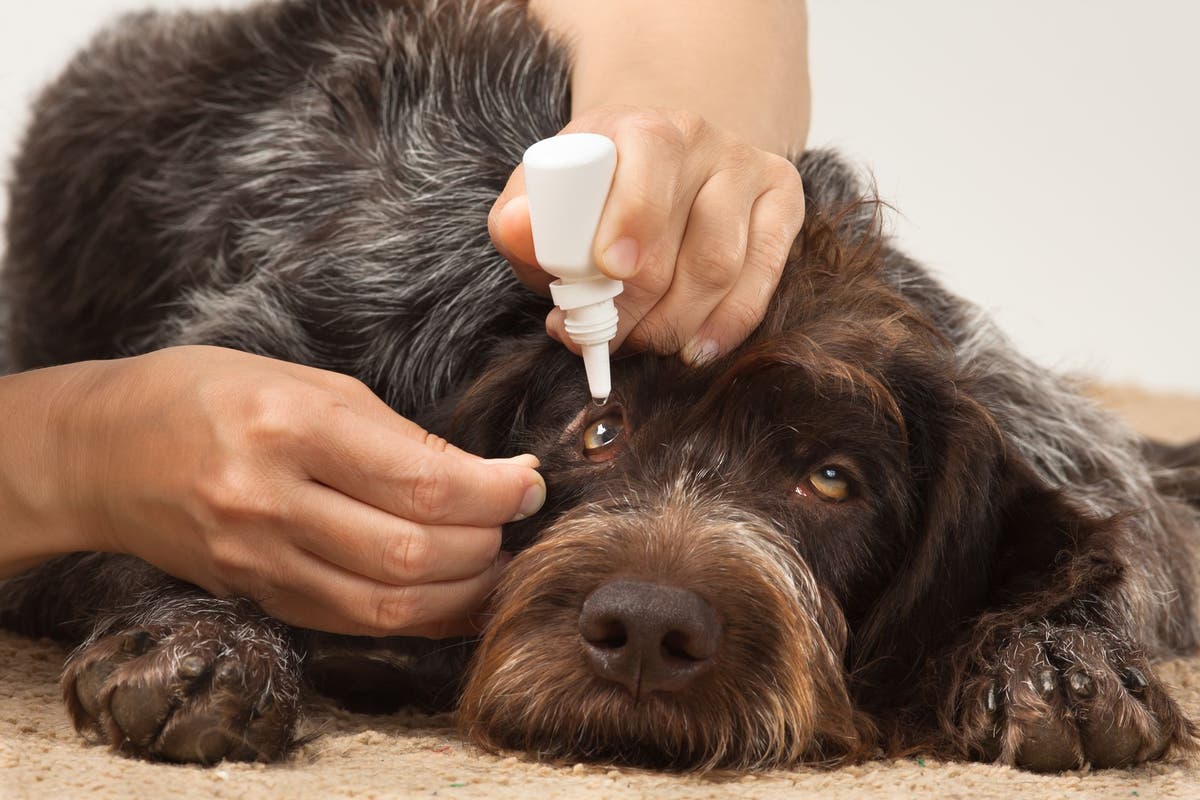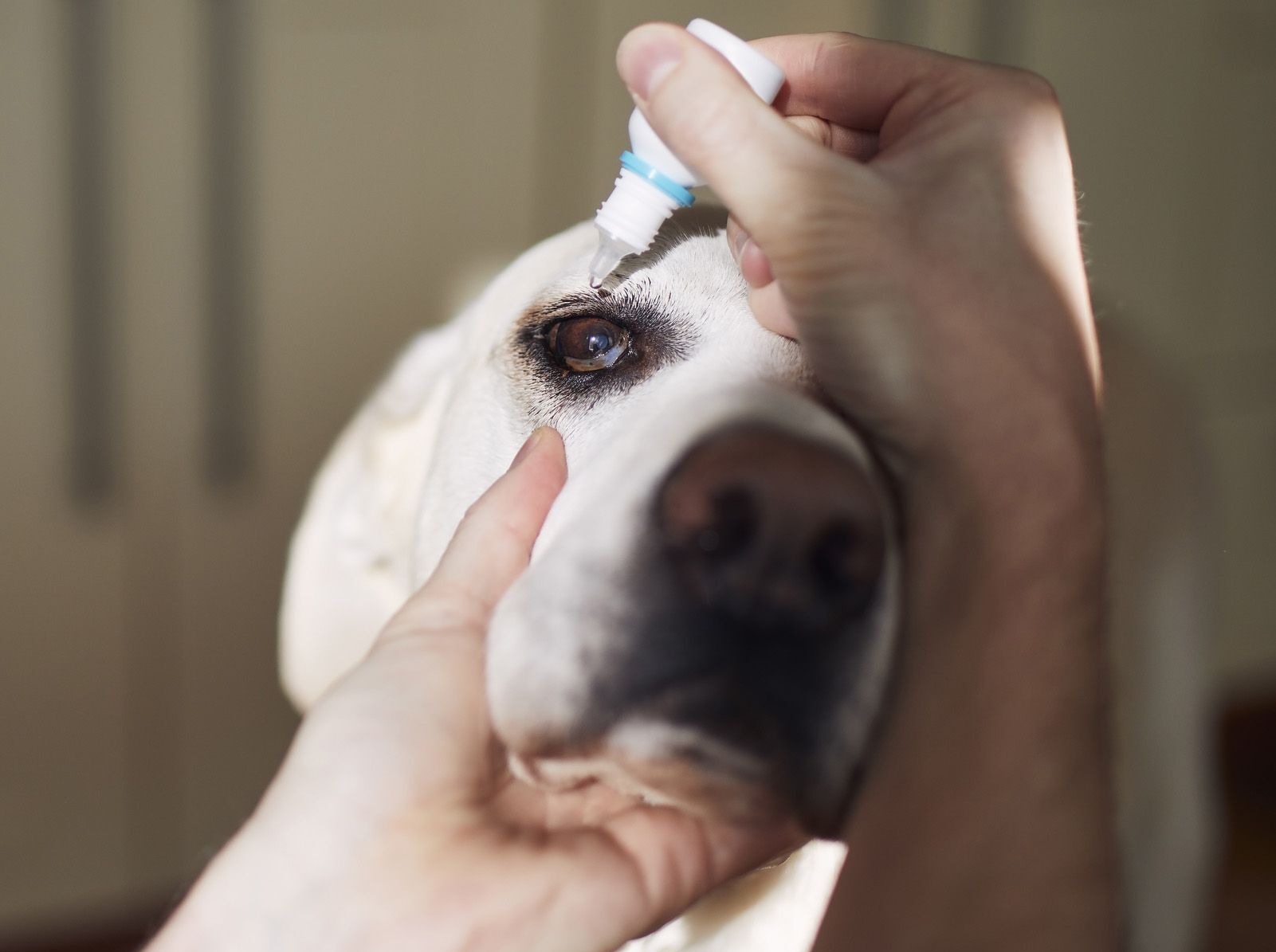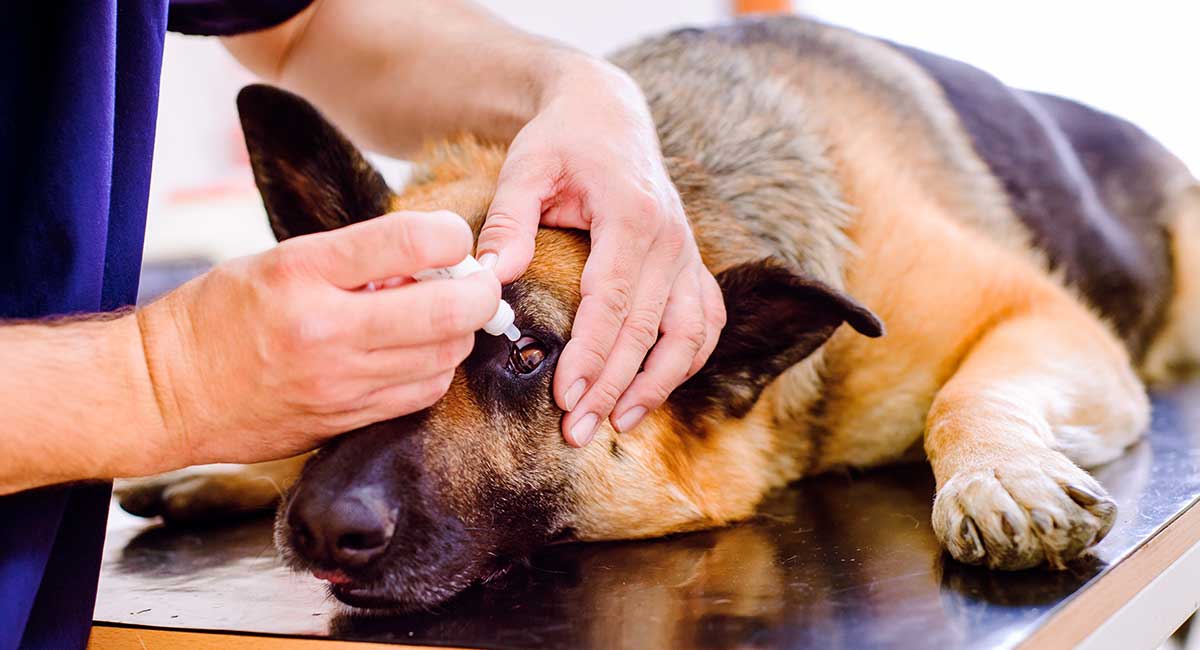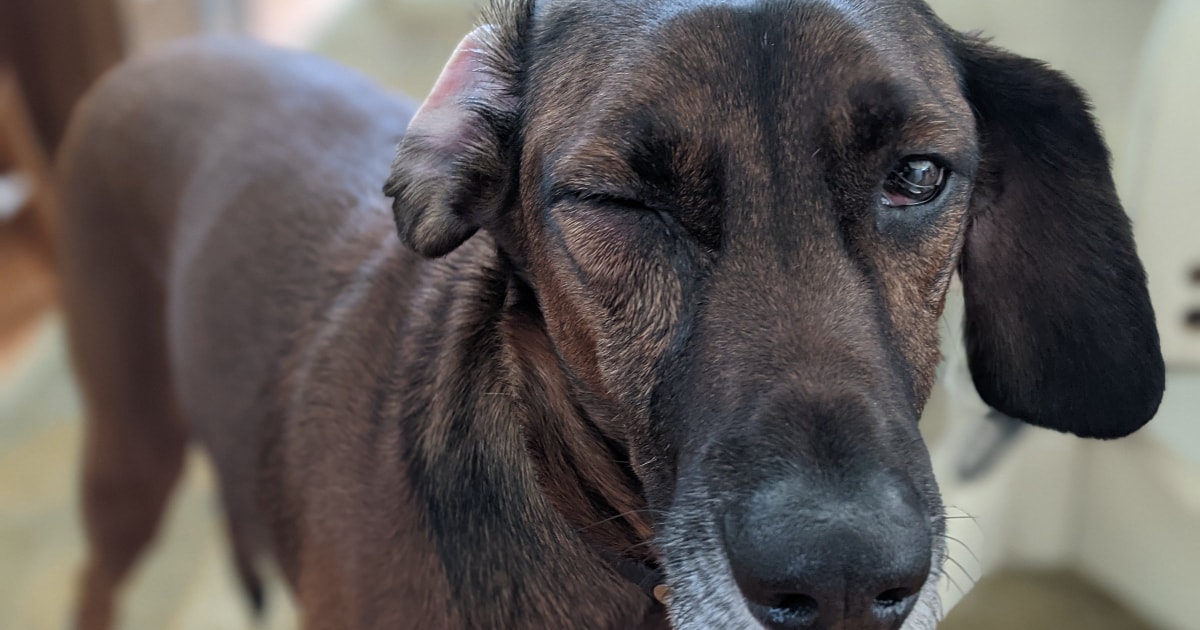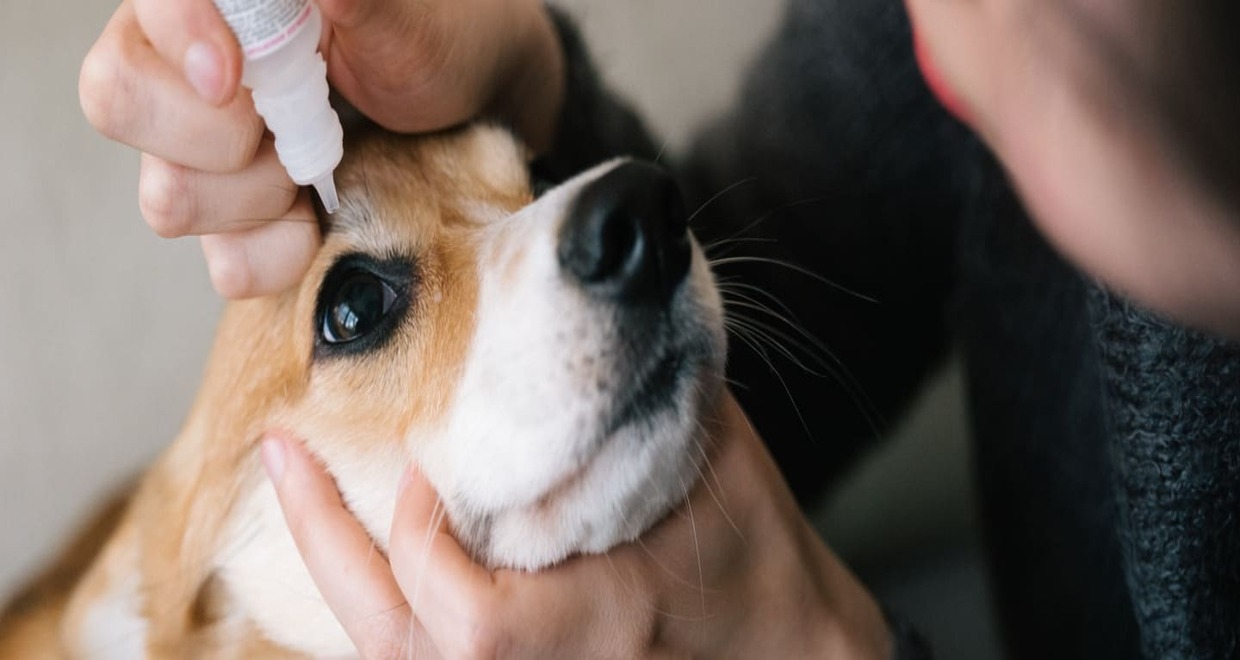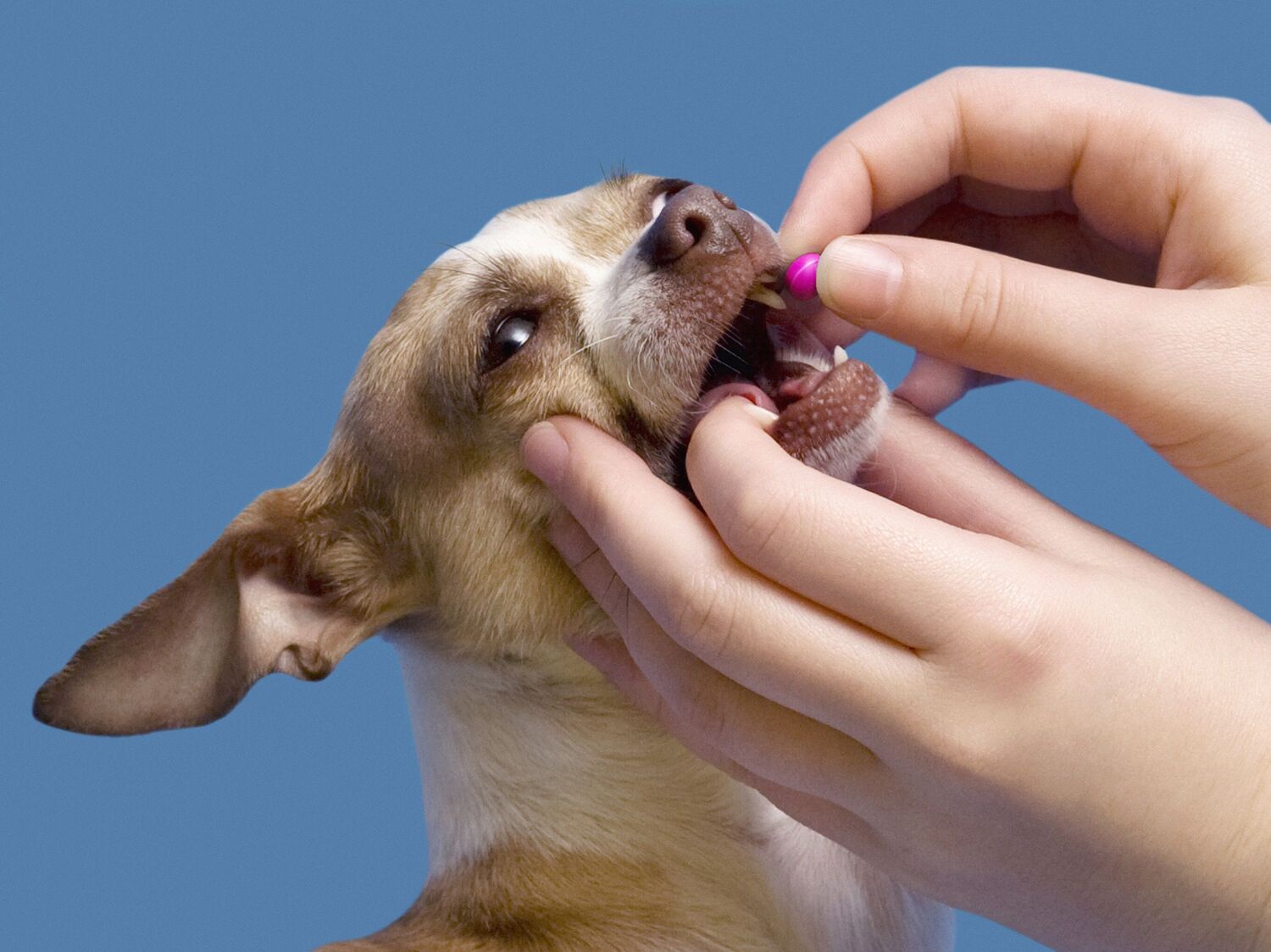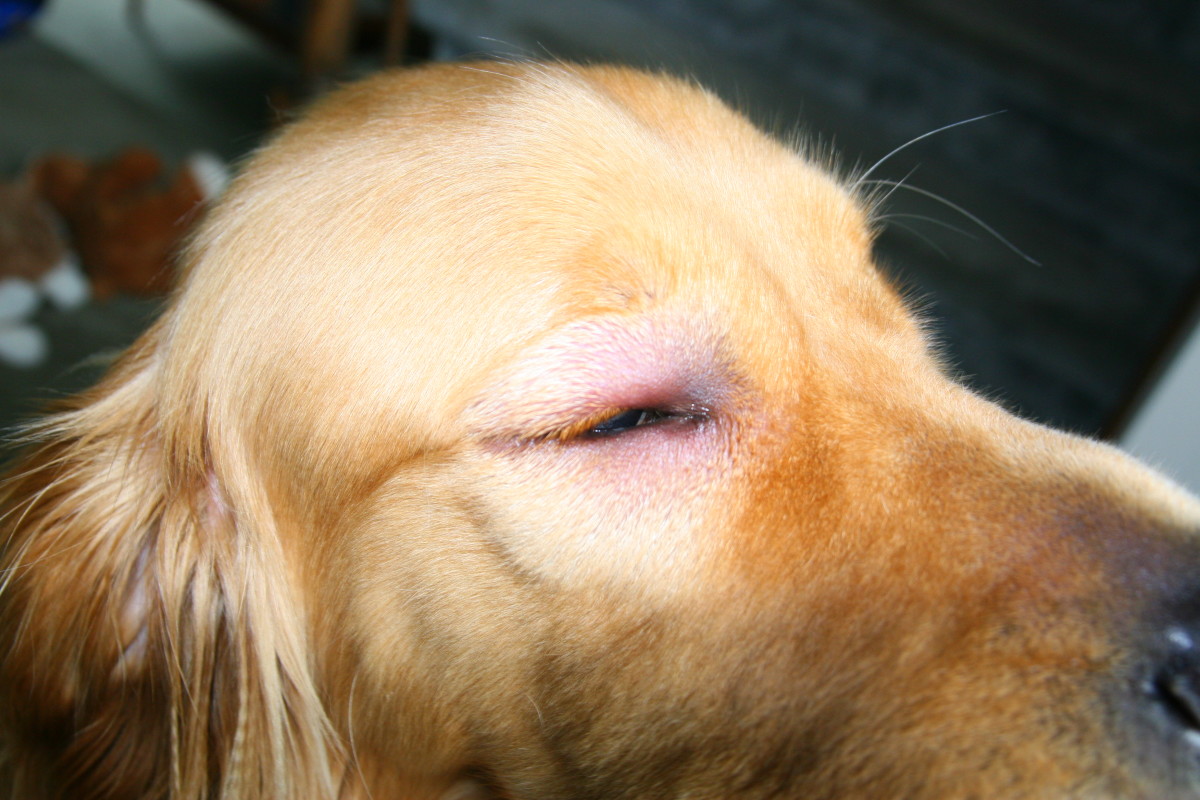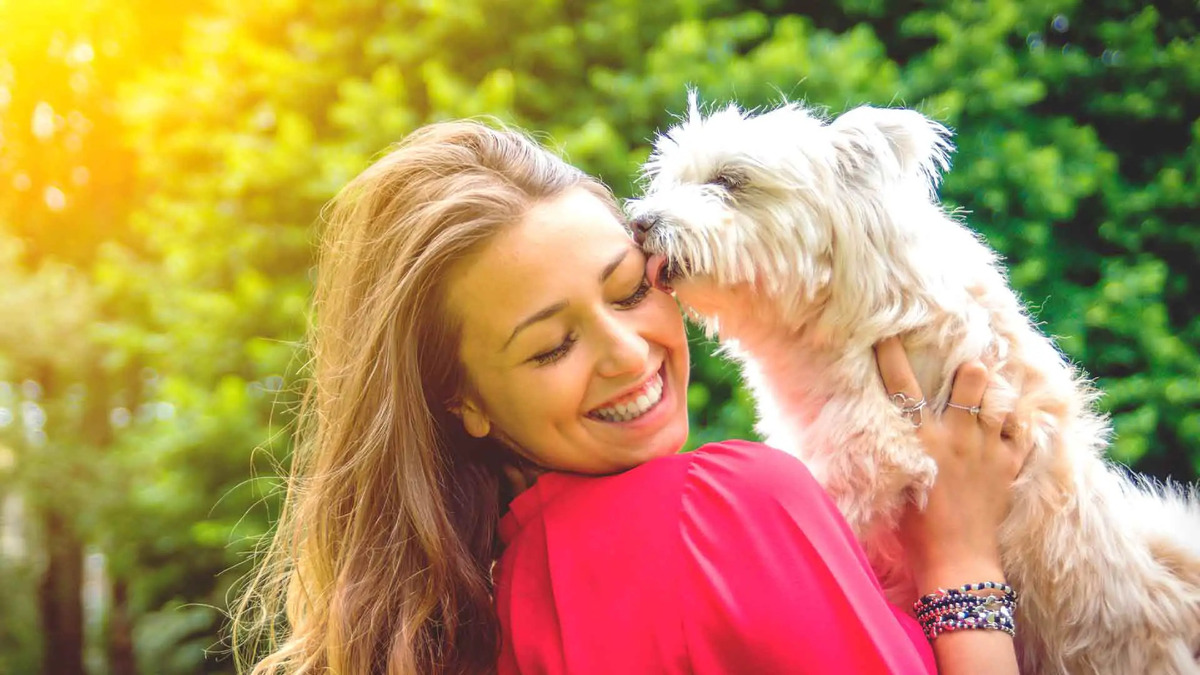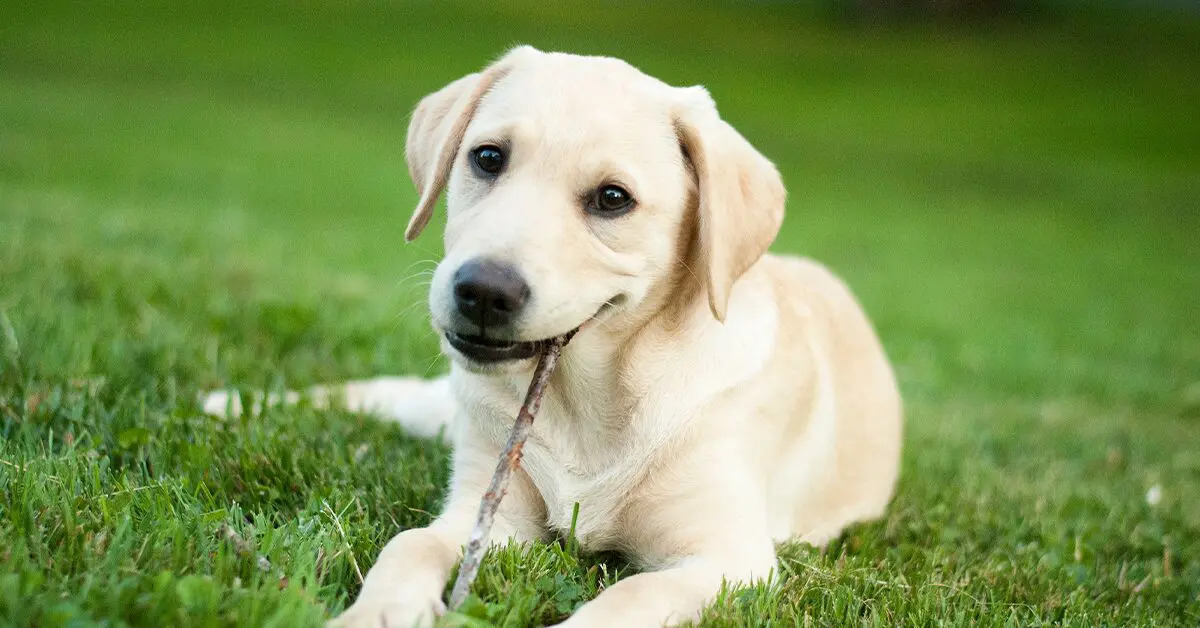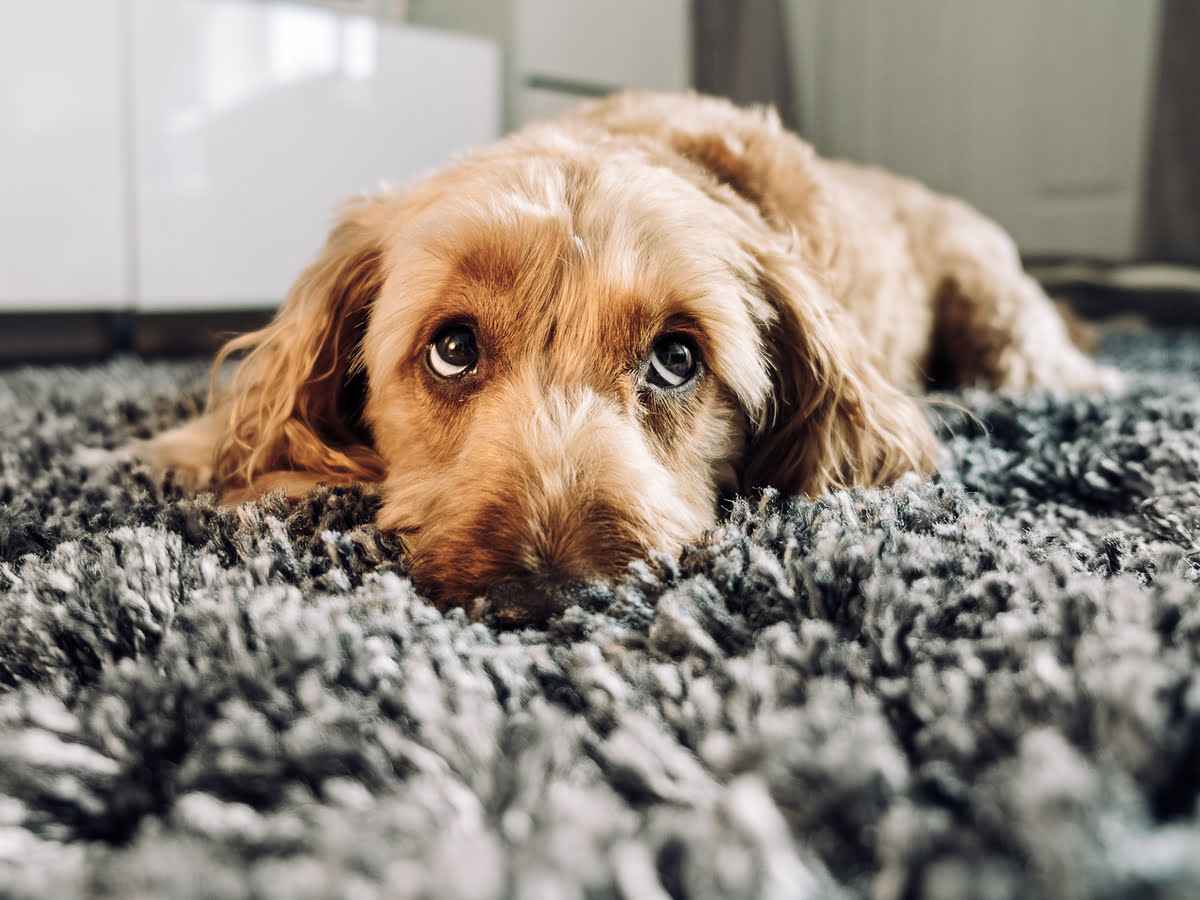Home>Health & Wellness>Common Health Issues>Eye and Ear Health>What To Do If Your Dog Eats Eye Drops
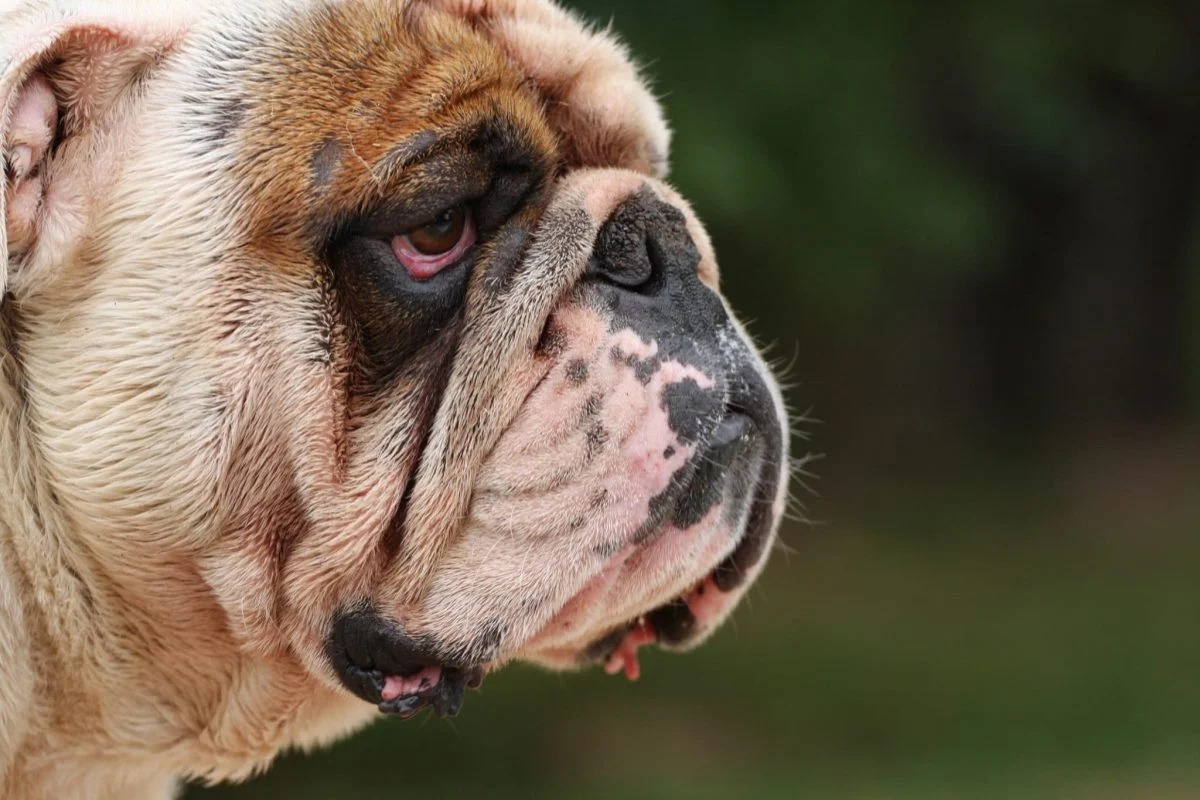

Eye and Ear Health
What To Do If Your Dog Eats Eye Drops
Published: February 12, 2024
Learn what to do if your dog ingests eye drops and how to maintain their eye and ear health. Expert tips and advice for pet owners.
(Many of the links in this article redirect to a specific reviewed product. Your purchase of these products through affiliate links helps to generate commission for Pawsomeoldies.com, at no extra cost. Learn more)
Table of Contents
Introduction
Discovering that your dog has ingested eye drops can be a cause for concern. Eye drops, which are commonly used to treat various eye conditions in humans, contain active ingredients that can be harmful to dogs if ingested. As a responsible pet owner, it's crucial to understand the potential dangers associated with this scenario and be prepared to take appropriate action to ensure your dog's well-being.
In this article, we will delve into the potential risks of eye drop ingestion for dogs, outline the necessary steps to take if your dog consumes eye drops, and provide guidance on monitoring your dog for symptoms. Additionally, we will discuss the importance of seeking veterinary care and offer valuable insights on preventing future incidents.
Understanding the potential dangers of eye drop ingestion by dogs is essential for safeguarding your pet's health. By being equipped with the knowledge and preparedness to address such a situation, you can effectively mitigate the risks and ensure the safety and well-being of your beloved canine companion.
Understanding the potential dangers
When a dog ingests eye drops, it can lead to a range of potential dangers due to the active ingredients found in these products. Eye drops typically contain various substances such as preservatives, lubricants, and medications, all of which can pose serious risks to a dog's health if consumed.
One of the primary concerns is the presence of active medications in eye drops. Many eye drops are formulated with medications designed to treat specific eye conditions in humans, such as glaucoma, conjunctivitis, or dry eyes. These medications, when ingested by dogs, can have adverse effects on their health. For example, the active ingredient in some eye drops, such as brimonidine or timolol, can lead to a drop in blood pressure and heart rate in dogs, potentially causing lethargy, weakness, or even collapse.
Furthermore, preservatives commonly found in eye drops, such as benzalkonium chloride, can be toxic to dogs when ingested in significant quantities. Ingestion of preservatives can result in gastrointestinal upset, including vomiting and diarrhea, and may even lead to more severe complications if not addressed promptly.
Additionally, some eye drops contain lubricants and other additives that are not intended for ingestion. These substances can cause irritation and inflammation in the gastrointestinal tract of dogs, leading to discomfort and potential complications.
It's important to note that the severity of the dangers associated with eye drop ingestion depends on various factors, including the specific ingredients in the eye drops, the quantity ingested, and the size and health status of the dog. Even a small amount of certain active ingredients or preservatives can have detrimental effects on a dog's well-being.
In summary, the potential dangers of eye drop ingestion for dogs encompass the ingestion of active medications, toxic preservatives, and other potentially harmful substances. Understanding these risks is crucial for pet owners to recognize the seriousness of the situation and take prompt and appropriate action to address any instances of eye drop ingestion by their dogs.
Steps to take if your dog ingests eye drops
Discovering that your dog has ingested eye drops can be a distressing situation, but it's essential to remain calm and take immediate action to address the potential risks. Here are the crucial steps to take if your dog consumes eye drops:
-
Assess the Situation: Upon discovering that your dog has ingested eye drops, gather as much information as possible. Determine the type of eye drops ingested, including the active ingredients and any additional substances present. If the eye drops were in their original packaging, review the label for details on the ingredients and potential hazards.
-
Contact a Veterinary Professional: It's imperative to seek guidance from a veterinary professional as soon as possible. Contact your veterinarian or an emergency animal poison control hotline to describe the situation and provide relevant details about the eye drops ingested. Follow their instructions carefully and be prepared to transport your dog to a veterinary facility if advised to do so.
-
Observe Your Dog: Keep a close eye on your dog for any signs of distress or unusual behavior. Monitor for symptoms such as vomiting, diarrhea, lethargy, weakness, excessive drooling, or difficulty breathing. Document any observed symptoms and changes in your dog's condition to relay to the veterinary professional.
-
Do Not Induce Vomiting: Refrain from attempting to induce vomiting in your dog unless specifically instructed to do so by a veterinary professional. In some cases, inducing vomiting can exacerbate the situation or cause additional harm, especially if the eye drops contain potentially harmful substances.
-
Provide Support and Comfort: During this stressful time, offer your dog reassurance and comfort. Keep them in a calm and quiet environment, and ensure they have access to fresh water. Avoid offering food or additional medications unless directed by a veterinarian.
-
Transport to Veterinary Care: If advised by a veterinary professional, transport your dog to a veterinary facility for a thorough evaluation and appropriate medical intervention. Be prepared to provide details about the eye drop ingestion, including the type of eye drops, the quantity ingested, and any observed symptoms.
Taking swift and decisive action is crucial when addressing instances of eye drop ingestion by dogs. By promptly seeking professional guidance and closely monitoring your dog's well-being, you can effectively mitigate the potential risks and ensure the best possible outcome for your furry companion.
Monitoring your dog for symptoms
After your dog ingests eye drops, it's essential to closely monitor their behavior and physical condition for any signs of distress or adverse reactions. The ingestion of eye drops containing active medications, preservatives, or other potentially harmful substances can manifest in various symptoms that warrant immediate attention. By diligently observing your dog and being vigilant for any unusual changes, you can promptly identify and address any emerging issues.
Signs to Watch for:
Gastrointestinal Distress:
Keep a close eye on your dog for symptoms of gastrointestinal upset, such as vomiting and diarrhea. These symptoms may indicate that the ingested eye drops are causing irritation or toxicity in the digestive system. Additionally, observe for signs of abdominal discomfort, restlessness, or reluctance to eat or drink.
Lethargy and Weakness:
Monitor your dog's energy levels and overall demeanor. The ingestion of certain substances in eye drops can lead to lethargy, weakness, or a lack of coordination. If your dog appears unusually tired, exhibits weakness in their limbs, or seems unsteady on their feet, it could be indicative of a negative reaction to the ingested eye drops.
Respiratory Distress:
Be attentive to any changes in your dog's breathing patterns. Difficulty breathing, wheezing, or coughing may signal respiratory distress, which could be a result of the ingested substances affecting the respiratory system. Rapid or labored breathing should be taken seriously and promptly addressed by a veterinary professional.
Excessive Drooling or Pawing at the Face:
Excessive drooling or pawing at the face can indicate discomfort or irritation in the oral and facial regions. If your dog displays these behaviors, it may suggest that the ingested eye drops are causing oral or ocular irritation. Additionally, observe for redness, swelling, or discharge around the eyes and mouth.
Read more: What Eye Drops Are Good For Glaucoma In Dogs
Documenting Symptoms:
It's crucial to document any observed symptoms and changes in your dog's condition. Keep a record of the onset and duration of symptoms, as well as their severity. Note any additional behaviors or physical changes that seem out of the ordinary. This documentation will serve as valuable information to share with the veterinary professional, aiding in the assessment and treatment of your dog.
Seeking Veterinary Guidance:
If you notice any concerning symptoms or behaviors in your dog following the ingestion of eye drops, it's imperative to seek veterinary guidance without delay. Contact your veterinarian or an emergency animal poison control hotline to describe the observed symptoms and receive expert advice on the next steps to take. Prompt communication with a veterinary professional is essential for ensuring the well-being of your dog and addressing any potential complications arising from the ingestion of eye drops.
By diligently monitoring your dog for symptoms and promptly seeking veterinary guidance when necessary, you can play a proactive role in safeguarding your pet's health and well-being in the aftermath of eye drop ingestion. Your attentiveness and swift action can make a significant difference in ensuring the best possible outcome for your beloved canine companion.
Seeking veterinary care
Seeking veterinary care is a critical step in addressing the potential risks associated with a dog's ingestion of eye drops. Upon discovering that your dog has consumed eye drops, it is imperative to promptly seek guidance and intervention from a veterinary professional. The expertise and guidance of a veterinarian are essential for assessing the situation, determining the potential impact on your dog's health, and implementing appropriate measures to mitigate any adverse effects.
When seeking veterinary care after a dog ingests eye drops, it is essential to communicate all relevant details to the veterinary professional. Provide information about the specific type of eye drops ingested, including the active ingredients, preservatives, and any additional substances present. If possible, share details such as the quantity of eye drops consumed and the time of ingestion. This information enables the veterinarian to make informed decisions regarding the appropriate course of action for your dog's care.
Upon contacting the veterinarian or an emergency animal poison control hotline, be prepared to describe any observed symptoms or changes in your dog's behavior. Clear and concise communication about your dog's condition can aid the veterinary professional in assessing the severity of the situation and providing tailored guidance. If your dog exhibits symptoms such as vomiting, diarrhea, lethargy, respiratory distress, or oral irritation, relay these details to the veterinary professional to facilitate an accurate evaluation.
Based on the information provided, the veterinary professional may recommend specific actions, such as monitoring your dog at home, bringing them in for a thorough examination, or administering targeted treatments to address potential complications. In some cases, the veterinarian may advise immediate transport to a veterinary facility for comprehensive evaluation and supportive care.
It is crucial to adhere to the guidance provided by the veterinary professional and follow their recommendations diligently. If transporting your dog to a veterinary facility is advised, prepare for the journey by ensuring your dog's comfort and safety during transit. Be ready to provide the veterinary team with comprehensive details about the eye drop ingestion, including any observed symptoms and changes in your dog's condition.
By seeking veterinary care promptly and collaborating closely with the veterinary professional, you can ensure that your dog receives the necessary attention and interventions to address the potential risks associated with eye drop ingestion. The expertise and guidance of a veterinarian play a pivotal role in safeguarding your dog's health and well-being in such situations, ultimately contributing to the best possible outcome for your beloved canine companion.
Preventing future incidents
Preventing future incidents of eye drop ingestion by dogs requires proactive measures and vigilant pet care practices. By implementing the following strategies, pet owners can significantly reduce the risk of their dogs accessing and consuming potentially harmful eye drops:
Secure Storage:
Store all medications, including eye drops, in secure and elevated locations that are inaccessible to pets. Consider using locked cabinets or high shelves to prevent dogs from accidentally gaining access to medication containers. Additionally, be mindful of any guests or visitors who may bring medications into the home and ensure that they are stored safely out of reach.
Proper Disposal:
Dispose of expired or unused medications, including eye drops, promptly and responsibly. Avoid flushing medications down the toilet or throwing them in the trash where pets may have access. Instead, inquire about local medication disposal programs or community drop-off locations that accept unused medications for safe disposal.
Pet-Friendly Packaging:
When purchasing eye drops or any medications, opt for products with pet-resistant packaging. Childproof caps and secure closures can serve as an additional barrier to prevent pets from opening medication containers. Selecting products with robust and tamper-evident packaging can help mitigate the risk of accidental ingestion by curious pets.
Awareness and Education:
Educate family members, housemates, and visitors about the importance of pet safety regarding medication storage and handling. Raise awareness about the potential dangers of pets ingesting human medications, including eye drops, and emphasize the need for collective responsibility in safeguarding the well-being of household pets.
Veterinary Guidance:
Consult with a veterinarian regarding the safe storage and handling of medications in the home. Veterinarians can provide valuable guidance on pet-proofing the living environment, recommend pet-safe storage solutions, and offer insights into potential pet hazards associated with various household items, including medications.
Pet-Safe Alternatives:
Consider using pet-specific eye drops or ointments prescribed by a veterinarian for canine eye care needs. These products are formulated specifically for use in dogs and are designed to address ocular conditions while minimizing the risk of adverse effects from human eye drops.
By incorporating these preventive measures into daily pet care routines, pet owners can create a safer living environment for their dogs and reduce the likelihood of accidental ingestion of eye drops or other medications. Proactive prevention and responsible medication management are essential components of ensuring the well-being and safety of beloved canine companions.
